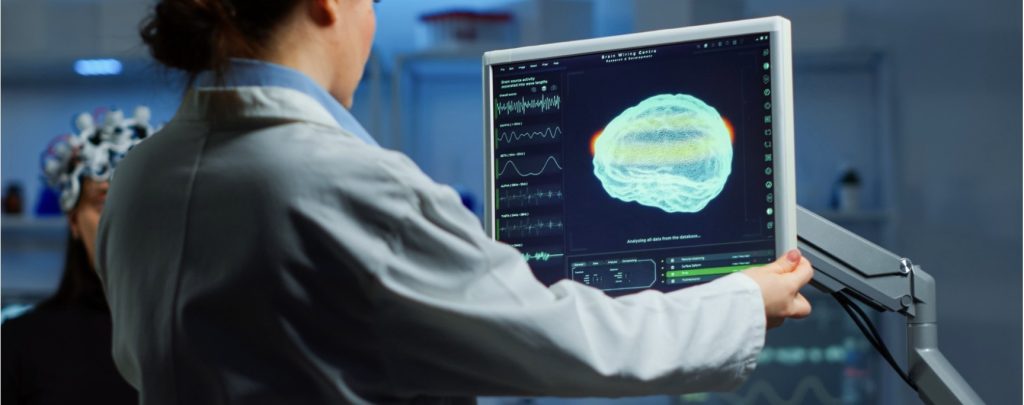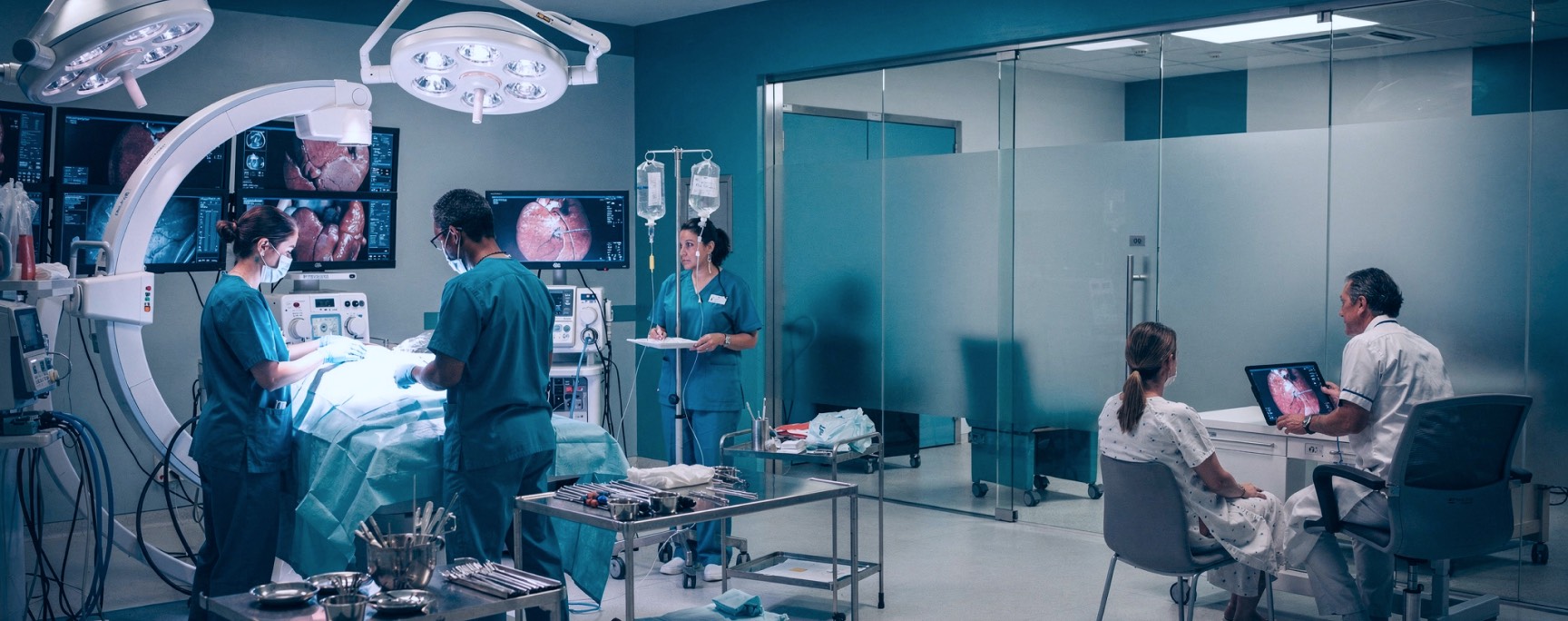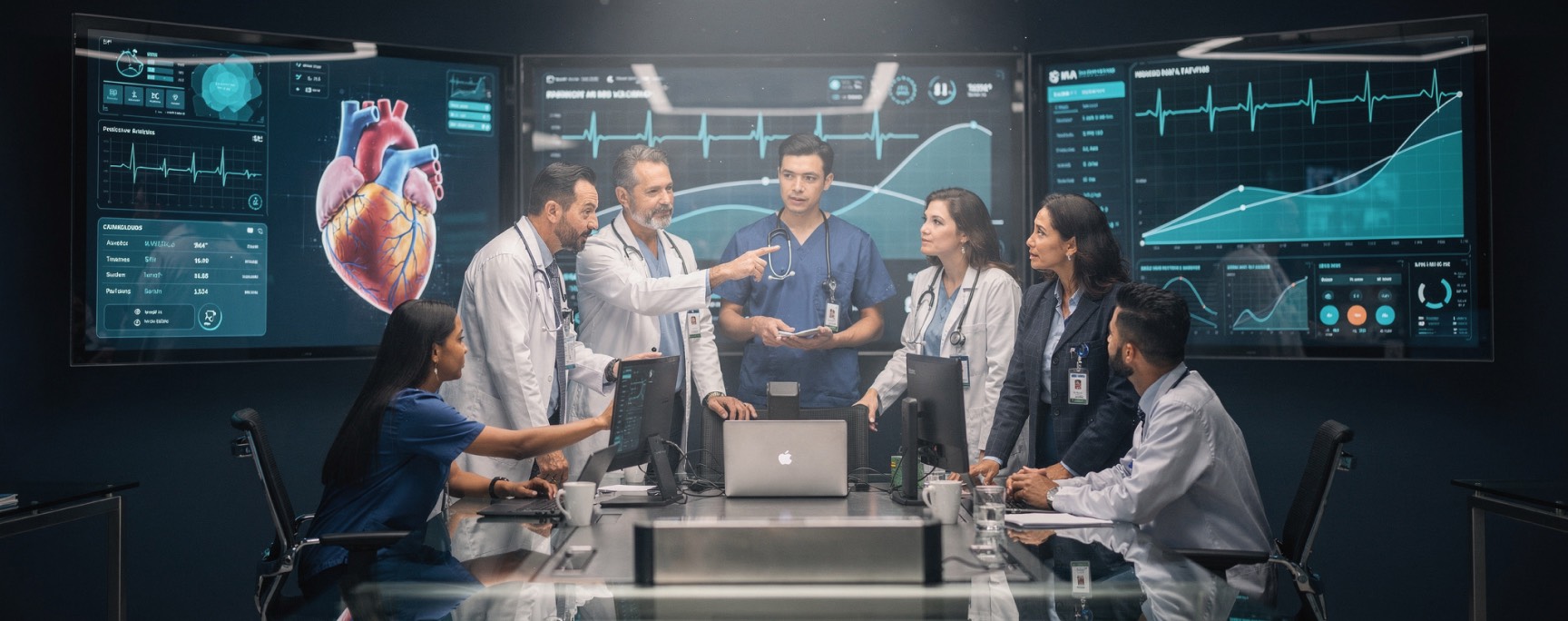AI in MedTech : Governance, Interoperability, and Safer Innovation
In modern healthcare, we are swimming in data — from patient vital signs, imaging scans, lab tests, wearable sensors, monitoring devices, electronic health records (EHR), and more. But data on its own is just noise. The real value comes when that data is transformed into actionable insight. That’s where AI in MedTech comes in: using algorithms, machine learning, and intelligent systems to convert raw medical data into better patient outcomes.
In this article, we’ll walk you through what AI in MedTech really means, where it’s already delivering value, what challenges lie ahead, & how decision-makers can adopt best practices for diagnostics in a safe, compliant, and effective way.
What is AI in MedTech & Why It Matters
“MedTech” refers to medical technology broadly—devices, diagnostics, software, and instrumentation used in prevention, diagnosis, monitoring, and treatment. Introducing AI integration in medical devices means embedding machine intelligence (ML models, neural networks, computer vision, etc.) into devices or software that directly impact patient care.
Healthcare produces nearly 30% of the world’s total data volume, yet a large share remains untapped. Healthcare AI solutions are revolutionizing this by outperforming humans in the analysis of massive datasets.
The effect of AI-driven healthcare innovation is already felt in several areas:
- Diagnostic Imaging: AI in diagnostic imaging can analyze medical images more accurately than human radiologists’ counterparts. It often spots diseases, like cancer, in their earliest stages.
- Predictive Analytics: AI systems spot patterns in patient histories. They predict health risks, allowing for proactive & preventative care.
- Surgical Planning: AI creates detailed 3D models & optimized plans. Surgeons can better anticipate challenges and improve accuracy.
Ready to Lead in AI-Driven MedTech?
At DASH, we partner with MedTech leaders to build AI solutions that are compliant, interoperable, and designed for long-term impact.
Explore Our OfferingsAI in Action: Diagnostics, Wearables, and Surgical Precision
AI-Powered Diagnostics: Beyond Human Capability
AI-powered diagnostics stands among the most advanced and validated applications in MedTech. Projects like Google’s DeepMind Health show that AI can spot eye diseases in retinal scans. Its accuracy matches that of top specialists. Healthcare AI solutions can evaluate radiology images. They find cancers and heart disease sooner and more accurately than conventional methods.
The strengths of this technology are particularly evident in three domains:
- Pattern recognition: Detecting subtle biological markers that may remain invisible to human observation.
- Speed: Analyzing complex medical images within seconds, replacing workflows that typically require hours.
- Consistency: Delivering uniform accuracy by eliminating human fatigue and diagnostic variability.
Remote Monitoring and Wearable Integration
AI in medical devices extends far beyond hospital walls. Wearable devices use machine learning to track patient vitals. They catch irregularities early, preventing serious problems. This real-time insight capability is extremely vital during emergencies & chronic disease management.
By 2025, experts predict that 90% of hospitals will use AI. This will help with early diagnosis & remote monitoring. This shift marks a big change in healthcare. It moves from reactive treatment to proactive prevention.
Surgical Robotics and Precision Medicine
AI integration in surgical robotics exemplifies precision medicine at its finest. The MISSO Robotic System, for example, offers personalized pre-planning and precise cutting to ensure consistent outcomes in joint replacement surgeries. AI minimizes human error, ensuring exceptional precision in critical situations.
Emerging tools extend this potential further. AI-powered surgical metaverses blend AI and extended reality. They create immersive spaces for planning and performing surgeries. These platforms change how we approach interventional healthcare. They provide realistic training modules and offer real-time 3D guidance during live procedures.
The Business Case: Benefits and Efficiency Gains
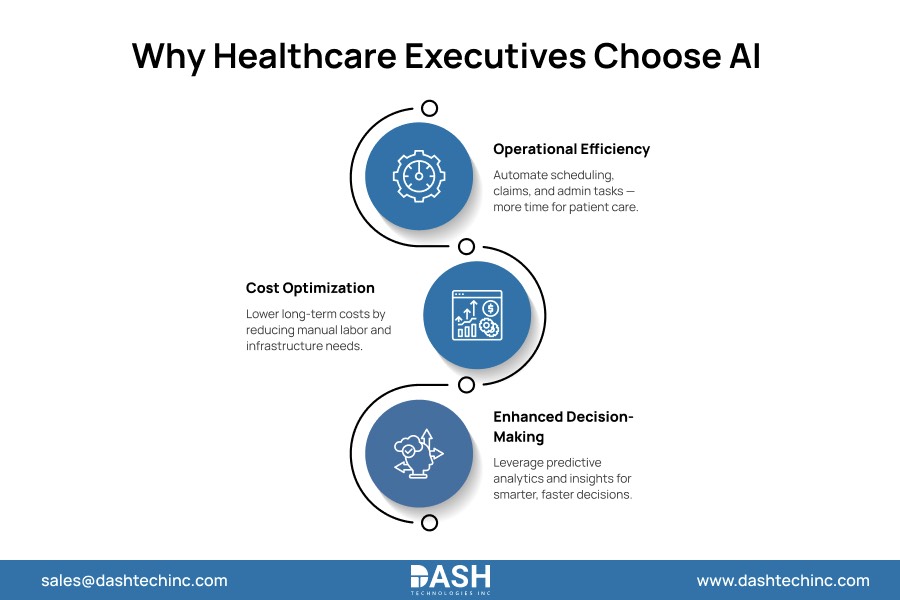
For healthcare executives and decision-makers, the appeal of healthcare AI solutions extends beyond direct clinical improvements:
Operational Efficiency
The key feature for businesses is the operational efficiency gained from healthcare AI. Automating tasks like appointment scheduling and insurance claims saves time. This cuts down on administrative work. This lets healthcare workers spend more time on patient care. AI for patient outcomes also helps institutions run more efficiently.
Cost Optimization
The initial investment in AI equipment may be high. However, it can save costs over time. AI boosts efficiency and reduces repetitive tasks. Higher efficiency means lower costs. AI reduces the need for costly infra and manual labor.
Enhanced Decision-Making
AI uses predictive analytics and also data-driven insights to improve decision-making. Devs can use data to spot patterns & trends. This helps them choose wisely about design changes, assess risks, and meet regulations.
Navigating the Risks of AI in Medical Devices
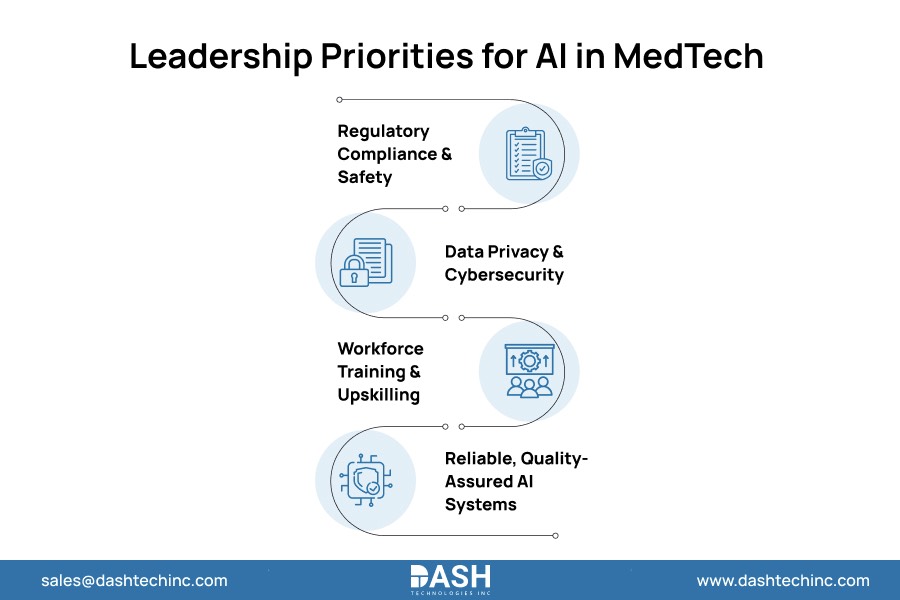
AI integration in medical devices offers great promise but also brings challenges healthcare leaders must address.
Regulatory Compliance and Safety
Post-market surveillance of AI/ML technologies is vital to ensure performance. Regulatory bodies are increasing their focus on AI/ML. Organizations must show both safety and effectiveness through clear validation & thorough testing.
Data Privacy and Security
AI systems use large datasets, so there are worries about patient confidentiality. Protecting sensitive information is a major concern. Hospital Information Systems (HIS) are key to managing risks. To keep them secure, we need ongoing monitoring, strong governance, & steady investment in protections.
Skills Gap and Training
AI-driven healthcare innovation works best when clinical staff have the right skills. Many professionals struggle to learn how to use AI in medical devices. They need specific training to feel confident with these tools. Organizations must invest in structured training programs. This is key to unlocking the full value of their AI deployments.
Quality Assurance and “AI Hallucinations”
Industry experts warn against placing unchecked trust in AI outputs. Systems may generate “hallucinations” or inaccuracies when faced with limited or poor-quality data. To reduce these risks, regulatory and compliance teams should assess each AI system. They need to consider the benefits for operational efficiency. Also, they must weigh the risks tied to reliability, safety, and patient outcomes.
Best Practices for AI Integration in Medical Devices & Diagnostics
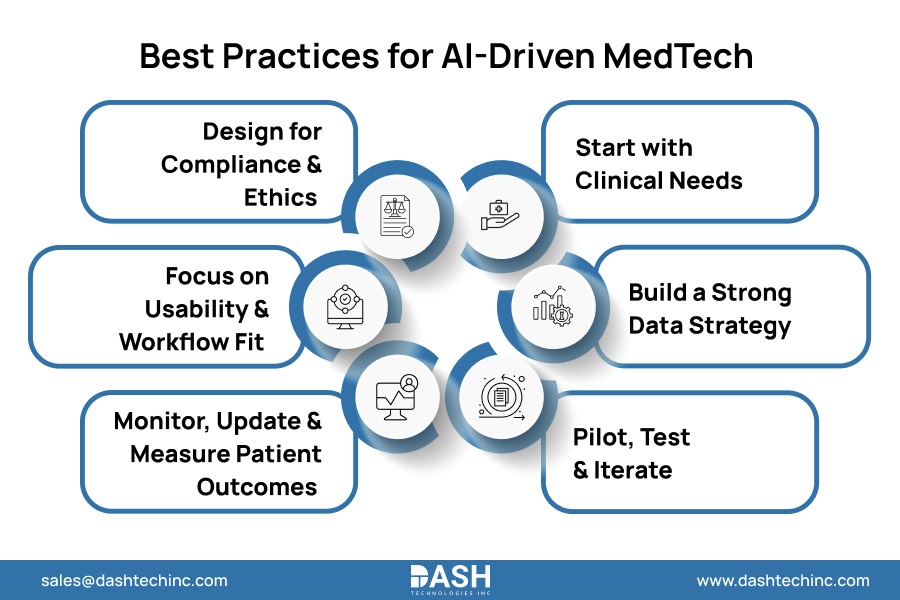
If you’re a MedTech firm or a healthcare provider leader, here are concrete strategies to improve your chances of success in turning data into better patient outcomes.
- Start with clinical needs − Don’t begin with “we have this AI tech” but with “what clinical problem are we solving?” Engage clinicians early.
- Invest in data strategy and governance − Data must be accurate, interoperable, and secure. Establish pipelines for versioning, logging, and bias detection in order to maintain quality.
- Use phased development and pilot studies − Start small, test in controlled settings, get feedback, iterate. Use clinical trials or pilot deployments before scaling.
- Ensure regulatory and ethical compliance up front − Engage regulatory experts early; design for explainability and traceability.
- Design for usability & integration − Good UI/UX, alert management, embedding tools into clinician workflows. Also, ensure the tech doesn’t overburden users.
- Continuous monitoring and model updating − After deployment, monitor performance using real-world data. Validate outcomes and retrain models as needed.
- Measure outcomes, not just technology metrics − Success means getting patient results. This includes mortality, morbidity, recovery time, readmission, & the quality of life. Cost-effectiveness also matters, not just algorithm accuracy.
Building the Future of Healthcare Technology
The convergence of AI and medical tech is a major step in healthcare. AI in MedTech helps organizations improve patient outcomes and enhance operational efficiency.
But success takes more than the deployment of technology. It calls for strategic alignment, careful planning, and skilled execution. Healthcare leaders need partners who understand AI’s technical details and daily clinical practices.
We can help if you want to change healthcare delivery with AI-powered innovations. We specialize in creating and using advanced healthcare AI solutions. Our services help you enhance all your clinical processes, improve diagnostics, & provide measurable patient outcomes. Get in touch with us today and start shaping the future of healthcare.
About Dash

Dash Technologies Inc.
We’re technology experts with a passion for bringing concepts to life. By leveraging a unique, consultative process and an agile development approach, we translate business challenges into technology solutions Get in touch.
